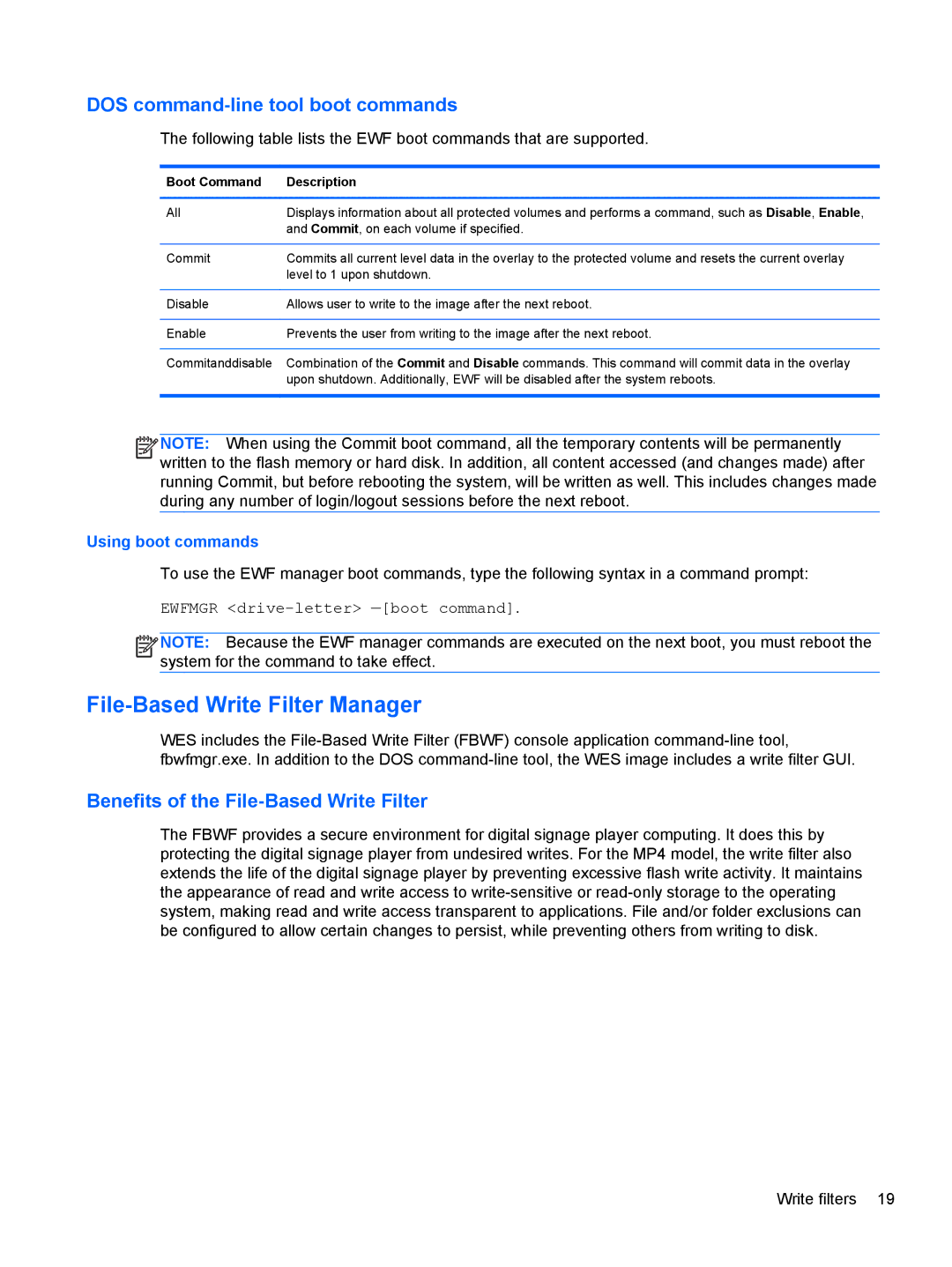
DOS command-line tool boot commands
The following table lists the EWF boot commands that are supported.
Boot Command | Description |
|
|
All | Displays information about all protected volumes and performs a command, such as Disable, Enable, |
| and Commit, on each volume if specified. |
|
|
Commit | Commits all current level data in the overlay to the protected volume and resets the current overlay |
| level to 1 upon shutdown. |
|
|
Disable | Allows user to write to the image after the next reboot. |
|
|
Enable | Prevents the user from writing to the image after the next reboot. |
|
|
Commitanddisable | Combination of the Commit and Disable commands. This command will commit data in the overlay |
| upon shutdown. Additionally, EWF will be disabled after the system reboots. |
|
|
![]()
![]()
![]()
![]() NOTE: When using the Commit boot command, all the temporary contents will be permanently written to the flash memory or hard disk. In addition, all content accessed (and changes made) after running Commit, but before rebooting the system, will be written as well. This includes changes made during any number of login/logout sessions before the next reboot.
NOTE: When using the Commit boot command, all the temporary contents will be permanently written to the flash memory or hard disk. In addition, all content accessed (and changes made) after running Commit, but before rebooting the system, will be written as well. This includes changes made during any number of login/logout sessions before the next reboot.
Using boot commands
To use the EWF manager boot commands, type the following syntax in a command prompt:
EWFMGR
![]()
![]()
![]()
![]() NOTE: Because the EWF manager commands are executed on the next boot, you must reboot the system for the command to take effect.
NOTE: Because the EWF manager commands are executed on the next boot, you must reboot the system for the command to take effect.
File-Based Write Filter Manager
WES includes the
Benefits of the File-Based Write Filter
The FBWF provides a secure environment for digital signage player computing. It does this by protecting the digital signage player from undesired writes. For the MP4 model, the write filter also extends the life of the digital signage player by preventing excessive flash write activity. It maintains the appearance of read and write access to
Write filters 19
